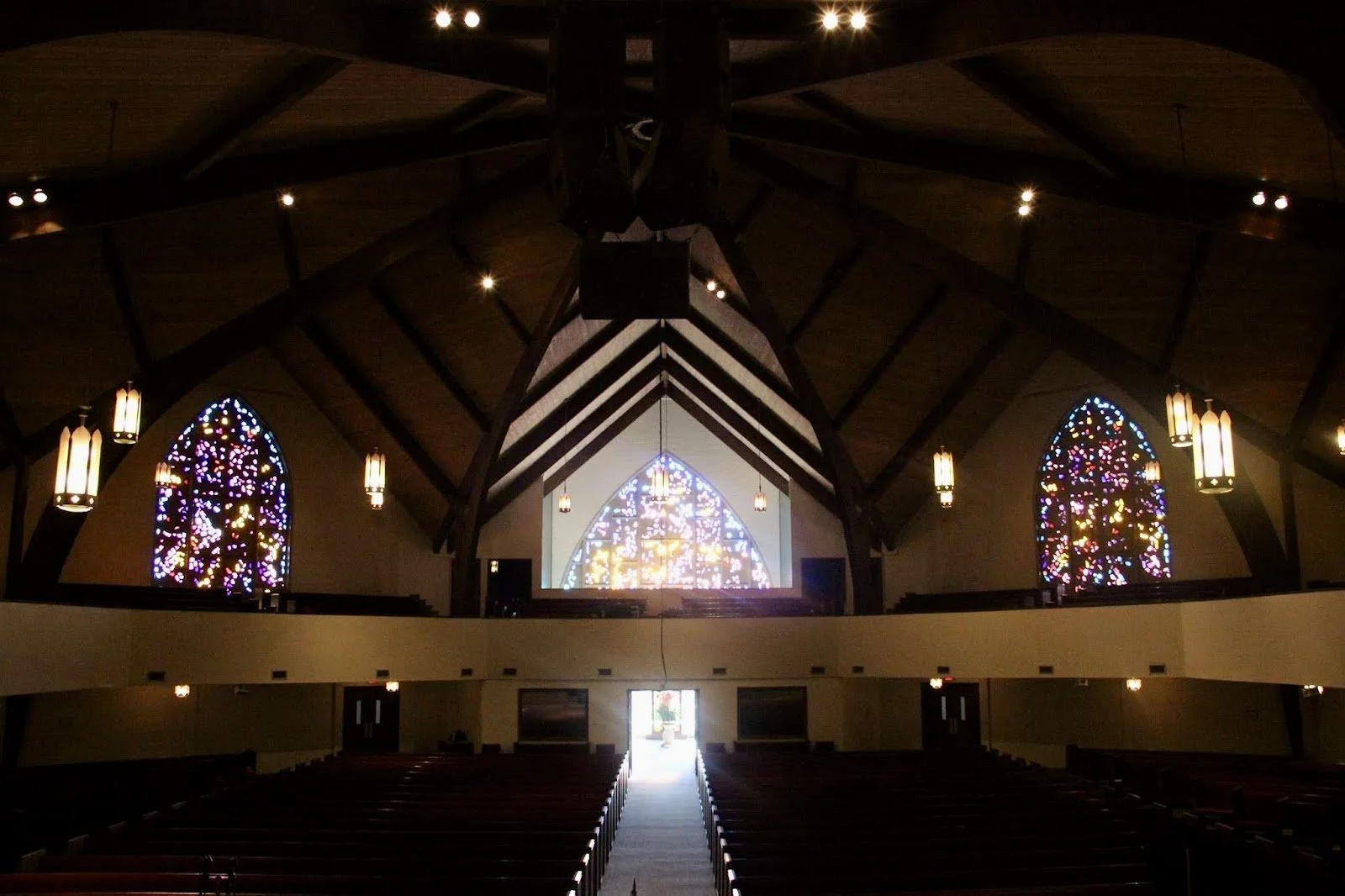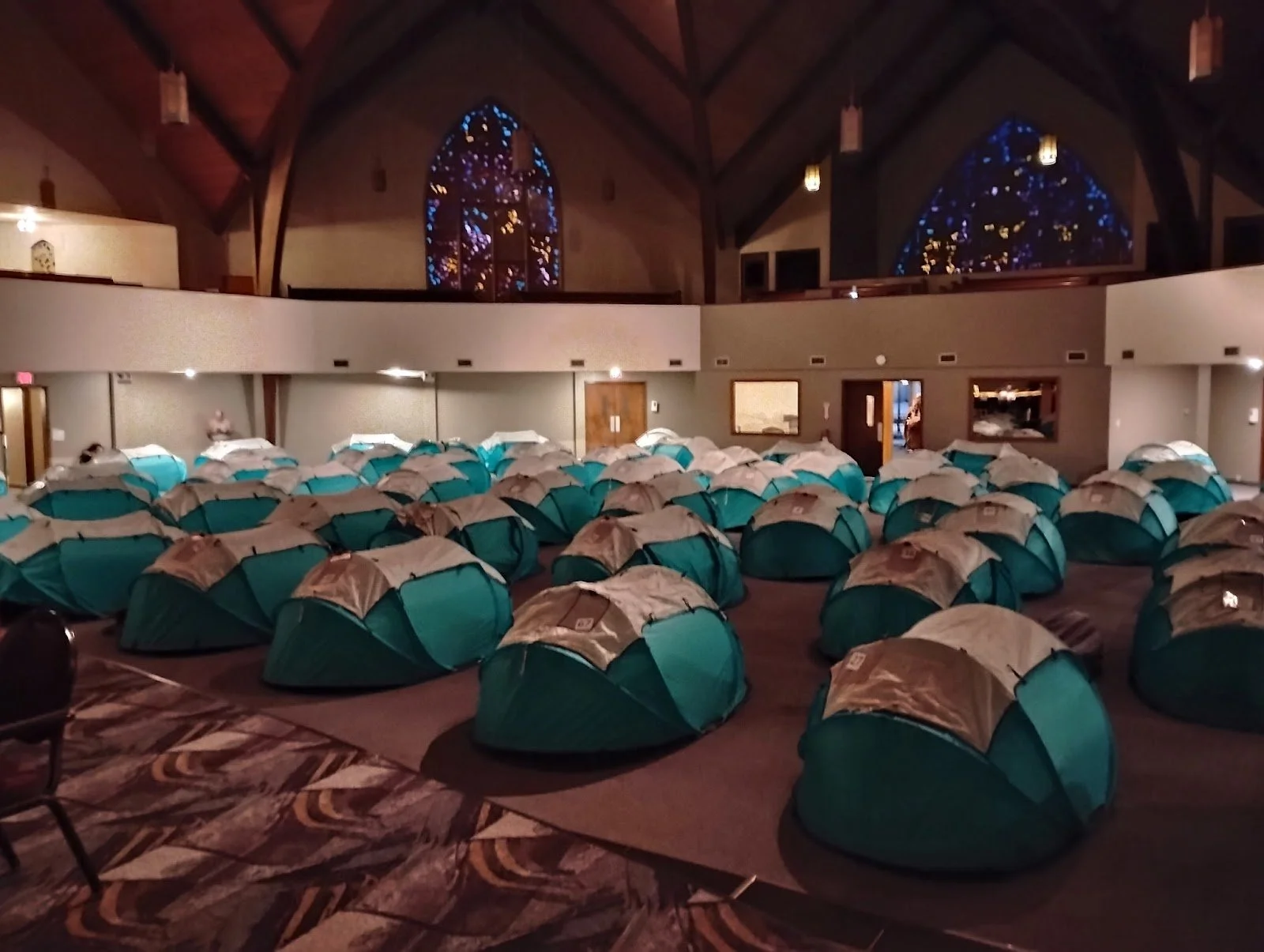Matthew 4:1-11
Then Jesus was led up by the Spirit into the wilderness to be tempted by the devil. He fasted forty days and forty nights, and afterwards he was famished. The tempter came and said to him, “If you are the Son of God, command these stones to become loaves of bread.” But he answered, “It is written,‘One does not live by bread alone, but by every word that comes from the mouth of God.’”
Then the devil took him to the holy city and placed him on the pinnacle of the temple, saying to him, “If you are the Son of God, throw yourself down; for it is written, ‘He will command his angels concerning you,’ and ‘On their hands they will bear you up, so that you will not dash your foot against a stone.’ ” Jesus said to him, “Again it is written, ‘Do not put the Lord your God to the test.’ ”
Again, the devil took him to a very high mountain and showed him all the kingdoms of the world and their splendor; and he said to him, “All these I will give you, if you will fall down and worship me.” Jesus said to him, “Away with you, Satan! for it is written, ‘Worship the Lord your God, and serve only him.’ ” Then the devil left him, and suddenly angels came and waited on him.
Some of you might have seen my Facebook post last week about how I was listening to Brandi Carlile in preparation for the show Christa and I saw on Friday, up in Chicago. (Brandi Carlile sings “The Story” that we sang in worship last year every Wednesday, during Lent. She’s the woman who sang “America the Beautiful” before the Super Bowl a couple of weeks, too. She’s one of my favorites.) Anyway, with today’s Gospel on my brain, my concert-prep turned into sermon-prep when her duet with Brandy Clark showed up in my playlist by way of a song called, “Same Devil.”
Among other things, in this song about the way evil sneaks into our lives the Brandies sing:
Everybody’s got some kind of hell
Just different levels
Different demons
Same devil
He don't knock
He walks right in
And if you're not watchin'
You'll run right into him
Same wrong, different right
Different tunnel, same bright light
Everybody lookin' for God on every level
Different demons
Same damn devil
It felt like the universe and my Spotify playlist were on the same page as the lectionary and this perennial story of Jesus’ temptation showed up at the beginning of another Lent.
And as we live into and begin this season of Lent together, as we consider a journey to the Cross of Good Friday and as we look forward to the hope of Easter, what does this little game of “Truth or Dare” between Jesus and the Devil have to do with us? What does this duel of wit and willpower, good and evil, Truth and temptation have to do with you or with me?
For my money, the power of this story comes in its persistent relevance – the nearness of this devil and the evil he represents; these temptations that belong to us just as much as they showed up for Jesus; the way we’re all “looking for God on every level,” as the song goes; how we each struggle with different demons, but it’s the same damn devil – the same evil of Sin and temptation – that dogs us all, that walks right in on every one of us, without knocking, at some time or another in our lives.
And the evidence of how prolific it is – this sin, this evil, this temptation – and the impact of our capacity to choose and fall victim to it, is everywhere.
Remember that unfaithful couple who got caught red-handed on the Kiss Cam at the Coldplay concert this summer? Their temptation – and its ramifications – were as public as it gets.
And did you see the controversy over that Canadian Olympic curler who, video evidence seems to show, just couldn’t resist poking that stone ever-so slightly and every-so slyly, over the line and outside of the rules?
And it can be deeper and darker than any of that, of course, too.
We’ve all heard about the man who shot and killed that police officer in Beech Grove, Brian Elliott, last week. What Devil … what Evil … what choices rolled around in his heart of hearts before he made the worst, wrong decision to pull the trigger last Monday evening?
And how about those social media oligarchs who are on trial for manipulating algorithms to influence the hearts and minds and lives of us all – and especially our young people – for the sake of more of our time, more of our allegiance, more of their money. What Devil of greed and power must be whispering in their ear and winning their allegiance in all of that?
And what about those Epstein Files? What ugly, depraved, sinful temptation crept into the mind and body of every grown man who’s name – redacted or not – released or still hidden – is listed in that infamous and evil treasure trove of sin?
Obviously, temptation and its results in the world surround us. All over the place, people are trying in all the wrong ways to prove their worth, to put their God to the test, to gain and abuse power, to test the limits of Sin.
In other words, too many take the dare every time. And sometimes, if we’re honest, the sort of cosmic “Truth or Dare” – this duel between truth and temptation – is even closer than the evening news.
I’m grateful and pray that most of us won’t ever have the chance to play this game on a world-sized stage or with such devastating results, but we’re familiar with the wilderness Jesus finds himself in this morning, are we not?
We can always measure and minimize our sinfulness against something as ugly and depraved as the Epstein Files, but we can also opt to misuse privilege and abuse power in ways that shame children or that take advantage of others unfairly.
We may not have the capacity to commit corporate-level fraud … but there’s always the option of being honest with our taxes; and we decide daily what “enough” is for us and with whom we will share our treasures – our God or our greed.
We may not have influence over something as grand as the Olympic games, but we are faced often with the opportunity to choose, to support, and to vote for fairness, equity, and justice.
We may never get caught cheating on the big screen at Madison Square Garden, but we make choices daily about whether to treat our spouses or significant others with integrity – or not.
Truth or Dare. The nature of the game has changed for those of us who find ourselves playing it NOT at birthday parties or in our pajamas at a sleep-over, but in our offices and in our schools and in our relationships and in our churches, too.
So maybe the greatest lesson we learn here is the simple fact that Jesus had to play this game, too. We’ve learned of Jesus’ coming to be with us – to be like us – as a baby in a manger. And we’re preparing to witness again that he died like we will, too. But it’s easy to forget that, in the meantime, even while he was preaching and teaching and healing and doing all kinds of miraculous things, Jesus was tempted and tested just like us as well.
The same damn devil that hounds us all … the same evil with which we contend … knocked on Jesus’ door, too.
But, thankfully, Jesus – as one of us – shows us how to play the game more faithfully. Jesus could have answered the temptations of evil by changing stones into bread and he could have jumped head-first off the top of the temple and lived, but where would that leave you and me? Who of us here can respond to temptation with that kind of power?
That’s why the hope for me in this morning’s Gospel is that Jesus dealt with the evil that confronted him without miracles, without relying on his own wisdom and without even his friends, his family and his disciples to help bail him out, that day in the wilderness. Jesus relied on nothing more and nothing less than his faith in the God who loved him, no matter what. The God who – at his baptism, not long before – had declared him beloved; and with whom God was already and always “well pleased.” And there’s hope in that good news for each of us.
Because of that, we get to see that faith is not only about miracles, grand gestures, and demonstrations of power – like the Devil likes to pretend. Jesus’ proved – even in the darkest moments of his temptations – in his solitude, when no one was looking – that faith is about nothing more and nothing less than relying on the Word, the promises, the Truth, and the love of God.
So I don’t know what your greatest temptations may be – the juicy stuff – vices of drink or drug or pornography or gambling, maybe. The small sacrifices some of us give up for Lent – chocolate, coffee, cursing, or social media, perhaps. (Frankly, I don’t believe God cares as much about those thing as the world likes to pretend – unless or until they do damage to our lives, our relationships, or to the world around us, of course.)
Maybe what tempts you is harder to see – the temptation to keep holding that grudge, or to refuse that forgiveness; the temptation to selfishness or pride or perfection; the temptation to let your fears and your grief trump your faith and your hope, too much of the time.
Whatever the case, Jesus shows us today that, because of his victory – not just that day in the wilderness but in his victory over the cross, too – that because he has already won the game between truth and temptation, between good and evil, between life and death, you and I get to play it all differently.
Because of his victory, new dares, new challenges and new lives are ours for the taking. Let us be tempted, then, to trust in our own forgiveness – so that we might share that kind of mercy with others. Let us be tempted to more gratitude and generosity. Let us be tempted to live knowing joy and hope and expectation of better things to come.
And let us be tempted to share, more often and more generously, an abundance of grace with ourselves, each other, and the world – not because we’re plagued by the same damn devil – but because we’re claimed by the same loving God, in Jesus Christ our Lord.
Amen



